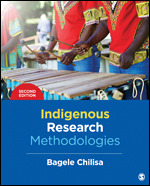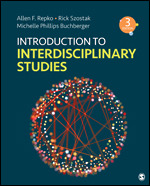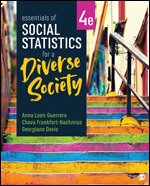2020 is past, but resources are still present!
What a year! What a way to begin a decade!
I don't know about you, but I've been socially-isolated at home through most of 2020. While I have worked from a home office for many years and am no stranger to online research, teaching and e-learning, the changes were profound.
An editorial calendar for MethodSpace was in place before we knew what MethodSpace readers and academia at large would face in this momentous year, but the monthly themes were surprisingly relevant. We are happy to turn the page on 2020, but MethodSpace posts and resources might be useful as you move forward. Please note that some resources were temporarily ungated for open access, and might now require library access.
Throughout 2020 we explored the importance of integrity when collaborating with others, teaching and mentoring students or new researchers, and communicating clearly and accurately.
We focused on the role of the researcher in the innocent pre-Covid 19 days of January 2020.
The first substantive post of the year was: Integrity: The Most Important Research Practice. Over the course of the month we touched on the importance of our roles as collaborative partners, writers, and innovators in work within and outside the academy. Find the whole January series here.
We continued to look at the importance of integrity and respect in February with an in-depth exploration of Indigenous research methods.
The Mentor of Residence, Bagele Chilisa, is the author of Indigenous Research Methodologies (2019). We offered a webinar featuring Bagele Chilisa, and Deborah McGregor, Associate Professor and Canada Research Chair in Indigenous Environmental Justice at York University in Canada.

The month included a rich collection of interviews with an Indigenous doctoral student and her supervisor, and shared numerous other resources. Find all the posts and recording links on this page.
Everything changed in March!
With the sudden shut-down for in-person instruction, Dr. Ravitch introduced "Flux Pedagogy."
Theory in Your Research Design was the topic we planned to discuss in March, with the help of Dr. Sharon Ravitch as Mentor-in-Residence. Dr. Ravitch is the author of Qualitative Research: Bridging the Conceptual, Theoretical, and Methodological with Nicole Mittenfelner Carl (2020).
Thanks to her flexibility and other contributors' help, we offered posts about teaching, adapting research designs to new realities, as well as writings about theory. Find the mix of posts through this link. Also find additional posts here about shifting research and instruction online.
Early 2020topics pointed to the need for engaging multiple perspectives, methodologies, and methods. In April and May we dug into ways we can build bridges and move beyond our own disciplines and ways of doing scholarly work.
The focus for April was on Interdisciplinary Research,with Mentor in Residence Dr. Rick Szostak. Rick is co-author of two new book editions, Introduction to Interdisciplinary Studies (2019) and Interdisciplinary Research: Process and Theory (2020). He also co-authored the 2011 Case Studies in Interdisciplinary Research. Interviews and posts can be found here.

The focus for May was on Mixed and Multi-Method Research, with Mentor in Residence Dr. Michael Fetters, author of the Mixed Methods Research Workbook (2020). We offered a webinar, Joint Display Analysis for Mixed Methods Research, and posted answers to participants' questions. The recording, slides, and and related resources can be found here, the whole monthly series, including posts on multi-method qualitative research, is here.
In June and July we focused on Career Crossroads. Originally, we were thinking about new graduates and early-career researchers. Thanks to the far-reaching impact of Covid-19 on higher education, it was clear that many of us are at career crossroads! Find the entire series of posts, resources, and interviews here.
With online learning as a reality for a new academic year, we focused on Teaching and Learning in August. Mentor in Residence Dr. Linda Bloomberg contributed a collection of practical tips, and we offered additional interviews, posts, and resources which you can find here.
Emerging & Online Methods were the September 2020 focus. Once again, a topic selected in the BC (before Covid-19) era had new urgency with many researchers finding that studies they had proposed or started to conduct could not be carried out as planned.
We offered a chance to learn directly from researchers through several written and video interviews, in addition to posts and resources. Find them all here.
The MethodSpace focus for October was on Action Research. Mentors in Residence were Ernest T. Stringer and Alfredo Ortiz Aragón, co-authors of the excellent new edition of the text, Action Research. With a rich set of contributions, we continued into November. Find all of the interviews, posts, and resources here.
Writing is always a challenge, but in 2020 we faced new distractions and fresh concerns.
November is Academic Writing Month on MethodSpace. Like everything else, changes already underway in the publishing industry took on a new sense of urgency given implications of the Covid-19 pandemic.
We focused on Publishing Trends (and what they mean for academic writers). We gained a strategic view in a video interview with Katie Metzlar, Associate Vice President at SAGE Publishing. We looked at trends from three perspectives in a webinar with Rebecca Bayeck, Eric Schmieder, and Sharon Zumbrunn. We followed up with Dr. Zumbrunn, author of the new book, See: Writing in Difficult Times.
The recordings and posts for the month, plus resources from past AcWriMo years, are all here.
We closed the year by circling back to some of the January themes about building trust and credibility. I discussed my new book about researchers and integrity in a video interview with my SAGE editor, Aly Owens.
Find the December posts and resources here.
2020 seemed like one impossible obstacle after the other, but we made it!
We were able to share rich, primarily open-access content on MethodSpace this year thanks to contributions from a wide range of creative, generous researchers. We look forward to 2021, so stay tuned for another year of exploration into research, including methods for approaches for using and teaching them and ways to share what we learn.
Here is the complete list of themes for 2020:
1
Researchers’ Roles: Power and Respect.
Dynamics with participants, populations and sampling, research ethics.
2
Indigenous and Intercultural Research.
Doing research within and across cultures.
3
Theory and Research Design.
Developing and using theories and theoretical frameworks.
4
Interdisciplinary Research.
Understanding and bridging research practices across disciplines.
5
Mixed Methods and Multimethods.
Using multiple methods within and across qualitative and quantitative paradigms.
6 – 7
Research Careers
. Clarifying goals, building our brands, and finding opportunities in academic and other settings.
8
Resources for Teaching & Learning Research
. Welcoming readers to the SAGE Research Methods Open House and previewing new books and instructional ideas for a new academic year.
9
Emerging Methods.
Examining new approaches to qualitative, quantitative, mixed methods.
10
Action Research and Research Activism.
Looking at researchers’ efforts in times and places of social upheaval and change.Understanding politization of research on social, climate, other issues.
11
Publishing Trends (AcWriMo).
Encouraging all academic writers to make progress on their work. Considering implications of publishing trends such as open access, blogging, mini-books, electronic journals .
12
Building Trust & Credibility in a Skeptical World.
Exploring ways to create authentic impact and cultivate respect for research findings.











